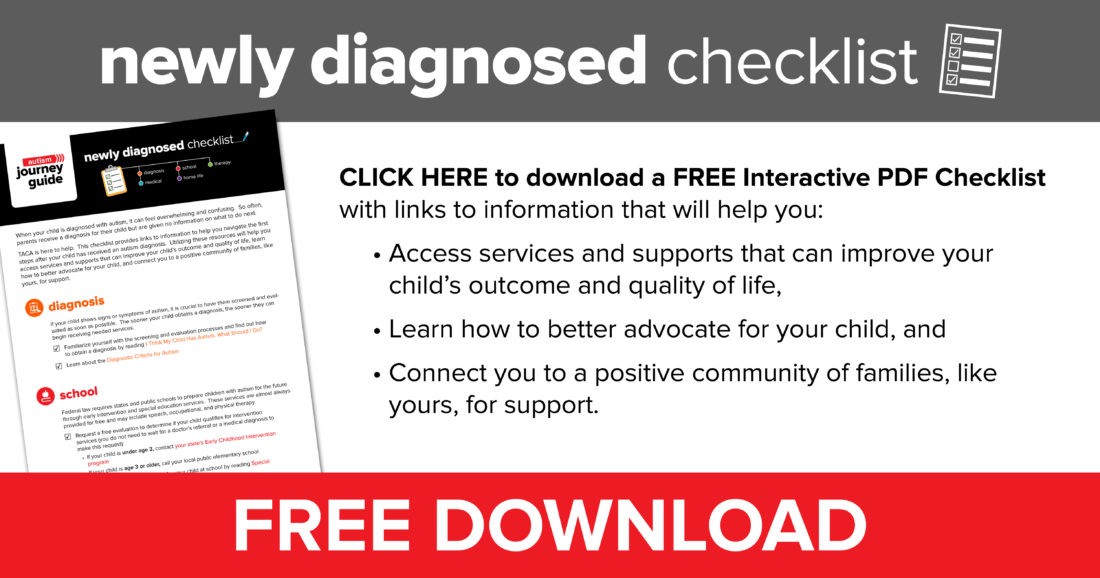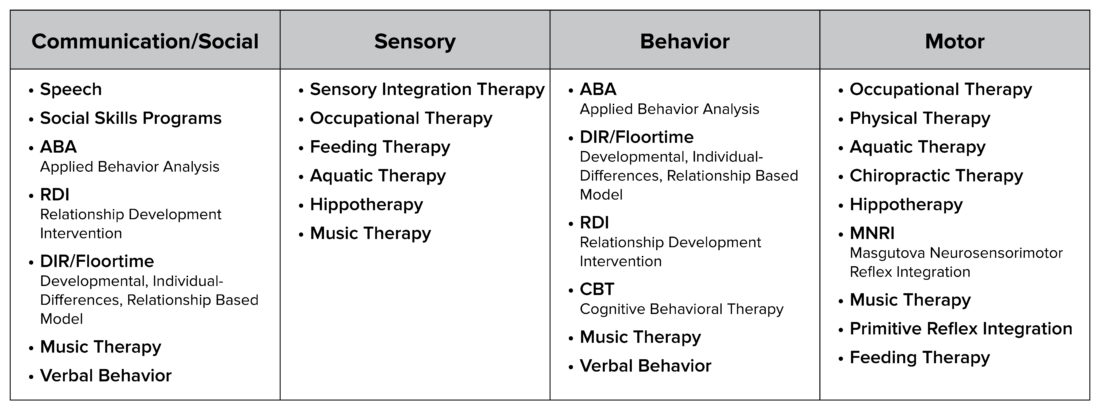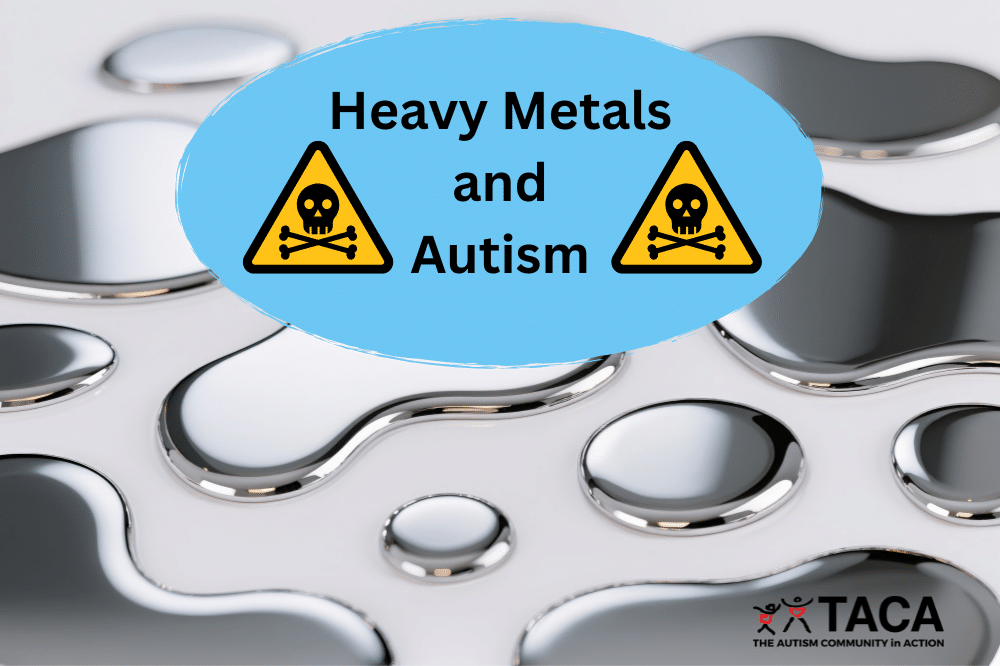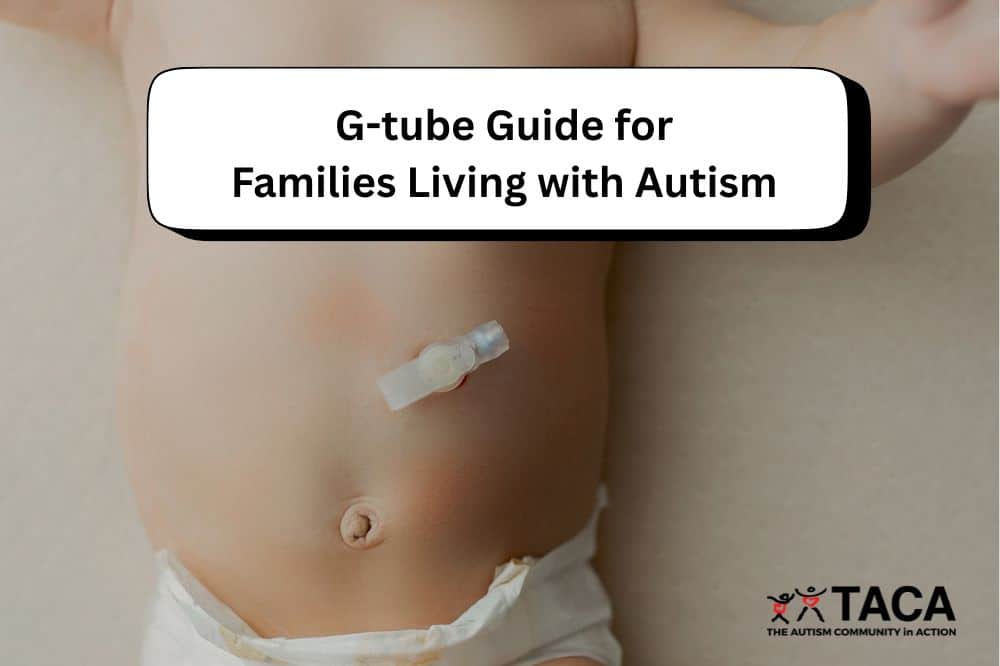Child Newly Diagnosed with Autism

All contents of this resource were created for informational purposes only and are not intended to be a substitute for professional advice, diagnosis, or treatment. Always seek the advice of your physician, therapist, or other qualified health providers with any questions or concerns you may have.
When your child is newly diagnosed with autism, it can feel overwhelming and confusing. To help you navigate the first steps of your autism journey, this article provides an overview of the following key autism topics:
- Therapy
- Medical Issues
- School
- Requesting an Evaluation
- Educational Diagnosis vs. Medical Diagnosis
- Home Life
- Safety
- State Disability Waiver Programs
- How to Access TACA’s Programs and Services for Support
As you begin your journey, be patient with yourself. You don’t have to know or do everything today. Take things one step at a time, knowing that, little by little, a little becomes a lot.

Therapy
Therapeutic interventions can help your child learn and develop skills that lead to independence. The most common therapeutic interventions for autism are occupational therapy, speech therapy, physical therapy, and Applied Behavior Analysis (ABA).
Additionally, many complementary therapeutic options target specific challenges and learning styles. The following chart provides examples of therapeutic interventions that address specific challenges.

Choosing Therapies and Therapists
When researching and selecting therapies, keep in mind that play and therapy are the work of a child with autism. In light of that, please be sure to include plenty of free time in your child’s schedule so they can relax and participate in activities of their choice. After all, a life with balance includes rest.
To help you determine which therapies and therapists are a good fit for your child, we offer the following suggestions:
- Choosing therapies:
- Make a prioritized list of your child’s needs.
- For example, does your child have a way to communicate their needs, feelings, and knowledge effectively? If not, make communication a priority.
- Identify your child’s learning style.
- Consider family finances, values, and time.
- Make a prioritized list of your child’s needs.
- Choosing therapists:
- Get recommendations from other families.
- Interview therapists and request to observe sessions.
- Above all, watch your child for warning signs of abuse or neglect! If you feel apprehensive, stop the therapy and re-evaluate.
This article has more information about Therapeutic Interventions for Autism, including a brief description of traditional and complementary therapies and possible funding sources.
Medical Issues

As the parent of a newly diagnosed child, you should know that many children with autism have underlying medical issues. Gastrointestinal issues, seizures, Cerebral Folate Deficiency, and mitochondrial dysfunction are just a few examples of underlying medical conditions commonly found in autism.
However, identifying underlying medical issues can be challenging for a couple of reasons. Because many children with autism struggle with communication and interoception (the ability to feel and understand what’s going on in our bodies), your child may not be able to verbally communicate to you or a doctor that they aren’t feeling well. Further complicating matters, the symptoms of many common co-occurring conditions mimic behaviors we typically associate with autism, making it hard to distinguish between the two.
Treating underlying medical issues improves your child’s quality of life. Also, it can improve their outcome. After all, when a person feels better, their ability to learn and develop new skills increases.
For this reason, TACA has an entire section of our website dedicated to underlying medical issues in autism. To begin, we recommend that parents read the following articles:
- Introduction to Medical Interventions for Autism – discusses why it’s essential to consider medical interventions for autism.
- Underlying Medical Issues in Autism – gives a cited overview of underlying medical issues with symptoms that overlap/mimic behaviors associated with autism.
- Finding a Doctor – offers suggestions and tips for finding a knowledgeable and experienced physician who can identify and address any underlying medical issues your child may have.
- Autism Treatment on a Budget – helps families understand how to maximize funds during this expensive journey.
School

As the parent of a newly diagnosed child, the special education system may intimidate you. However, if you take the time to learn about your rights under the Individual with Disabilities Education Act (IDEA), you can become a powerful and effective advocate for your child.
TACA has resources to help parents learn how to navigate the special education process successfully. To begin, we recommend reading the following:
Requesting an Autism Evaluation Through Child Find
Under IDEA, states have a legal obligation to find and evaluate children who need early intervention or special education services–at no extra cost to families. This is known as the Child Find obligation, and it encompasses children from birth to age 21.
You do not need a medical diagnosis or a doctor’s referral to request an evaluation. Your child’s age will determine how you go about requesting an evaluation through Child Find:
- Children Under 3:
- Contact your state’s Early Childhood Intervention (ECI) program.
- Find your state’s ECI contact information here.
- Contact your state’s Early Childhood Intervention (ECI) program.
- Children Over 3:
- First, contact your local public school and ask where to send a request for evaluation.
- Then, send a formal request for an evaluation via certified mail with a return receipt.
- Provide details about why you feel your child needs an evaluation
- For example, “I am asking that you evaluate my child for autism because they are showing the following symptoms…”
- Give consent for evaluation in your formal request (the school cannot evaluate your child without your consent).
- Provide details about why you feel your child needs an evaluation
How long do they have to complete the evaluation?
The Individuals with Disabilities Education Act (IDEA) states that schools/states have 60 days to evaluate your child. However, some states have shortened this to 30-45 days. After your child’s evaluation is complete, they have 30 days to create a documented plan/program outlining the services they will provide for your child.
Educational Diagnosis vs. Medical Diagnosis
Last but not least, it’s important to understand that there is a difference between an educational diagnosis of autism and a medical diagnosis of autism, namely:
- Who can issue the diagnosis:
- Only a licensed medical professional, such as a developmental pediatrician, neurologist, psychiatrist, or psychologist, can issue a medical diagnosis of autism.
- Whereas, you do not need to be a licensed medical professional to issue an educational diagnosis of autism. In fact, many school psychologists (LSSPs) are not licensed psychologists.
- Which services and supports your child can obtain with the diagnosis:
- A medical diagnosis can help secure insurance and government benefits.
- Whereas, an educational diagnosis of autism serves only to determine the likelihood that a child has autism and the child’s IEP eligibility category.
In order to maximize services and supports, we recommend that parents obtain both. To learn more about obtaining an autism diagnosis, click here.
Home Life

Safety
While it’s true that safety is a concern for all parents, having a child with autism brings unique challenges to the table. Below, you will find a brief description of safety considerations that all parents of newly diagnosed children need to be aware of. To clarify, we are not sharing this information to scare you. Rather, our intention is to empower you with knowledge and resources to help you keep your child safe.
Wandering
Children with autism are more likely to wander. Studies show that nearly half of children with autism wander/elope from safe environments. This happens even under careful supervision in the most loving homes. However, you can take precautions to prevent wandering. Additionally, you can take steps to ensure your child is safely found if they do elope.
Learn more about Keeping Your Kids with ASD Safe here.
Drowning
Another concern is drowning. In fact, drowning is a leading cause of death among individuals with autism. People with autism are often drawn to water, so teaching your child how to swim AND helping them develop water safety skills from a young age is critical.
Learn more by reading our article about Water Safety.
Physical Abuse, Sexual Abuse, and Bullying
Sadly, individuals with autism are more vulnerable to abuse due to challenges in communication, poor social awareness, and being viewed by others as having cognitive impairments. The following articles provide information on measures you can take to reduce this risk and keep your child safe:
Interactions with First Responders
Parents of children with autism need to be proactive in teaching their child how to interact with first responders because:
- Police officers often mistake autistic behaviors, such as stimming, poor eye contact, and speech difficulties, as suspicious behavior.
- Individuals with autism may attempt to flee, not respond, or even become aggressive toward first responders trying to help them.
This article has information and resources for how to facilitate positive interactions with first responders.
Pica and Household Toxins
Ingesting non-food items, a behavior known as pica, is seen in nearly 25% of children with autism. It can lead to serious medical issues or even be life-threatening. This article outlines how to address pica.
Family and Self Care
As the parent of a newly diagnosed child, you will be tempted to focus on their needs while neglecting the needs of other family members or yourself, which will result in burn-out and frustration for everyone. To avoid this situation, we offer the following advice:
- Make self-care a priority.
- Eat healthily, take your vitamins, and exercise.
- Stay up-to-date on preventative health care check-ups.
- Manage stress.
- Recognize that your best is enough.
- Know that it’s okay to make mistakes.
- Don’t over-schedule (in other words, it’s okay to say no).
- Limit time on social media.
- Do your best to get adequate sleep.
- If your child doesn’t sleep, make it a priority to figure out what’s causing their sleep issues.
- Remember that siblings have needs too.
- Let siblings know what’s going on. Not giving them accurate information may lead them to imagine the worst-case scenario.
- Furthermore, understand that they may experience a wide range of emotions and create a safe way for them to express their feelings.
- For example, give them the option to attend therapy or a sibling support group.
- Also, be sure to schedule some 1-on-1 time with siblings.
- Protect the health of your entire family by reducing exposure to hidden chemicals and pollutants. Learn more by reading Avoiding Toxins.
State Disability Waiver Programs
Every parent of a newly diagnosed child needs to familiarize themselves with government Disability Service Programs. These programs provide supports and services (such as insurance, respite care, financial aid, training, etc.) to individuals with disabilities and their families. In order to begin receiving help through these programs, you need to get on your state’s disability waiver waitlists.
Please note: program availability and services vary by state. For example, in some states, the wait for services is less than three years. However, in other states, the wait is more than ten years. Therefore, it’s imperative to get on your state’s disability waiver lists ASAP!
The following resources have great information about disability services and waiver programs in each state:
Reach Out For Support: TACA Programs
Most importantly, as a parent of newly diagnosed child, recognize that you’re going to need help and support throughout your journey. Don’t feel bad asking family and friends for help. Also, reach out to local support groups to get to know other parents in your area for emotional and social support.
Because we are families with autism helping families with autism, TACA is a great place to reach out to for support. Our services and programs provide education, support, and hope to families.
Online Support Group
TACA Hope and Help for Autism Facebook group is a private, moderated group for TACA members. There, we discuss autism and how to help the person with autism in your life be the best person that they can be. You can request to join here (please remember to answer the 3 admission questions).
Virtual Support Events
TACA hosts monthly virtual meetings to bring autism support and education to families regardless of their location. Click here to find dates and registration information.
Website
TACA’s website provides in-depth, comprehensive information and resources to help parents navigate all aspects of the autism journey.
The TACA Workbook
The new TACA workbook is a must-have, user-friendly roadmap to helping your child diagnosed with autism. With its evidence-based approaches, it serves as an invaluable companion on the journey toward empowerment and growth. Order yours here.
Parent Mentorship
This is a free TACA program where a parent is matched with an experienced TACA parent to receive support via email and help guide them on the autism journey. You can apply for a TACA mentor here.
Monthly Learning Series
Every Month, TACA’s Monthly Learning Series tackles a different important autism topic. Learn about this topic with recorded education, including previously recorded TACA conference presentations, informative website articles, helpful checklists, and valuable downloads tailored to each month’s topic. Find information on the Monthly Learning Series here.
Conferences
TACA holds an annual TACA Conference featuring expert speakers from across the United States on a wide variety of topics. You can find the most recent conference information here.
Chapters
TACA has local chapters across the United States, organized and run by local parent volunteers who host educational and support meetings known as “Coffee Talks.” Chapter events aim to provide families with education, resources, and support. Check here to see if there is a meeting in your area.
Scholarships
TACA has been providing scholarships for medical and therapeutic interventions since 2006. Scholarship availability relies on the generosity of donors, foundations, and the fundraising efforts of TACA chapters. You can check availability here.




